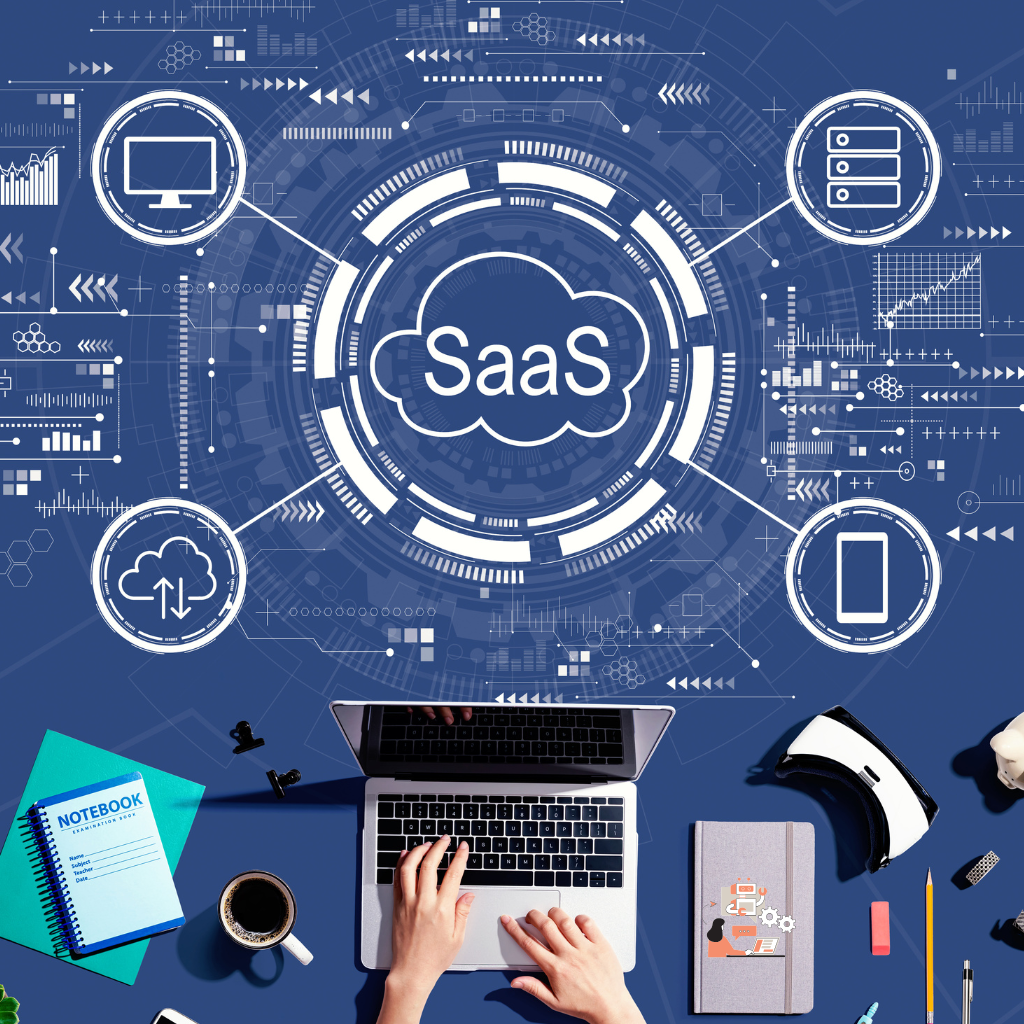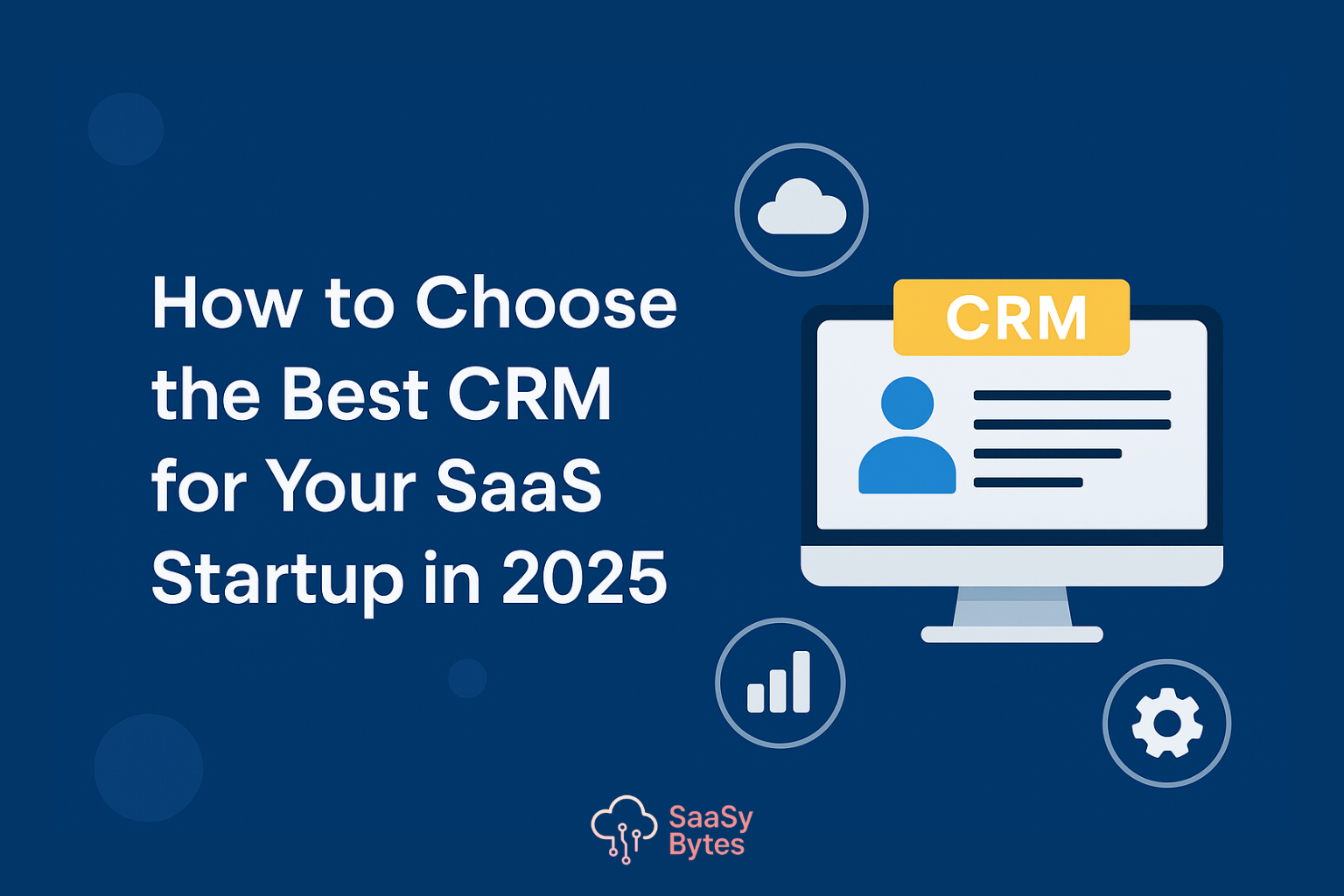In 2025, choosing the right CRM isn’t just a software decision—it’s a growth decision. For SaaS startups, your CRM (Customer Relationship Management) platform helps manage everything from lead generation to customer retention. Pick the right one, and you’ll scale faster with less friction. Choose poorly, and you’ll waste valuable time and budget. So how do you choose the best CRM for your SaaS startup this year? Let’s break it down.
Why Your SaaS Startup Needs a CRM in 2025
Startups today can’t afford to manage customer relationships in spreadsheets or outdated systems. A CRM is your central nervous system for:
- Tracking leads and sales
- Managing customer onboarding
- Monitoring user behavior and feedback
- Automating repetitive marketing tasks
- Generating sales and performance reports
With AI-powered features, integrations, and no-code automation becoming mainstream, CRMs in 2025 go far beyond contact databases—they’re decision-making engines.

Key Features to Look for in a CRM
When choosing a CRM for your SaaS startup, consider these must-haves:
1. Ease of Use
You’re a startup. You need a system your team can pick up and run with—no steep learning curves.
Look for: Clean UI, intuitive navigation, mobile support, minimal onboarding
2. AI-Driven Insights
CRMs in 2025 should offer more than automation—they should think for you.
Look for: Lead scoring, deal probability, smart email recommendations, sentiment analysis
3. Scalable Pricing
You may start small, but your CRM shouldn’t hold you back as you grow. More CRMs are shifting to usage-based models in 2025. Here’s how AI is reshaping SaaS pricing across the industry.
Look for: Transparent pricing, startup plans, low entry point, usage-based models
4. Integrations with Your Stack
No tool should be an island. Your CRM needs to play nicely with your:
- Email platform (e.g., Gmail, Outlook)
- Product analytics (Mixpanel, Amplitude)
- Marketing tools (Mailchimp, Intercom)
- Billing platforms (Stripe, Razorpay)
5. Automation & Customization
Every SaaS startup works differently. Your CRM should be flexible.
Look for: Workflow builders, custom fields, API access, Zapier/Make support
Top CRM Tools for Startups in 2025
Here are a few standout CRMs you should consider:
HubSpot CRM
- Best for: Teams needing an all-in-one system
- Why: Free tier, robust features, marketing integrations
- Watch out for: Pricing can rise quickly as you scale
Zoho CRM
- Best for: Budget-focused startups
- Why: Affordable, customizable, solid mobile app
- Watch out for: Less intuitive than competitors
Pipedrive
- Best for: Sales-centric teams
- Why: Clean pipelines, fast onboarding
- Watch out for: Limited marketing tools
Close
- Best for: SaaS with outbound sales
- Why: Built for inside sales teams, great automation
- Watch out for: Higher price, less suited for marketing-heavy orgs
Freshsales (Freshworks)
- Best for: Teams in India or APAC
- Why: AI-powered scoring, WhatsApp support
- Watch out for: Fewer integrations vs HubSpot
If you’re still building your tool stack, don’t miss our guide on top free SaaS tools for startups in 2025.
How to Decide What’s Right for You
Before picking a CRM, ask yourself:
- What are the 2–3 core workflows I want to streamline?
- How many users will need access in the next 6–12 months?
- What integrations are non-negotiable?
- Can I trial it with real data before committing?
Also, talk to your sales and customer success teams—they’ll have valuable input.
Final Thoughts
The right CRM will save you hours of manual work, increase conversions, and improve your customer experience. The wrong one? It’ll collect digital dust.
In 2025, don’t just choose a CRM. Choose a growth partner—one that fits your stack, your style, and your scale.
